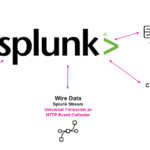The Keystone of Modern Data Science Teams
- 1 What is an Anchor Data Scientist?
- 2 The Role and Responsibilities of an Anchor Data Scientist
- 2.1 1. Technical Leadership
- 2.2 2. End-to-End Project Management
- 2.3 3. Cross-Functional Communication
- 2.4 4. Driving Innovation
- 3 Why Organizations Need an Anchor Data Scientist
- 3.1 1. Ensuring Consistency Across Projects
- 3.2 2. Improving Collaboration
- 3.3 3. Scaling Data Science Efforts
- 3.4 4. Bridging the Gap Between Data Science and Business Strategy
- 4 Essential Skills of a Successful Anchor Data Scientist
- 4.1 1. Technical Expertise
- 4.2 2. Business Acumen
- 4.3 3. Project Management Skills
- 4.4 4. Effective Communication
- 5 How to Become an Anchor Data Scientist
- 6 Conclusion
In today’s data-driven world, companies across industries increasingly leverage data science to extract insights, optimize operations, and make data-informed decisions. This trend has propelled the role of the data scientist to prominence, with new specialized roles emerging to meet the complex needs of modern data initiatives. Among these roles, the anchor data scientist stands out as a pivotal figure, leading data science teams and ensuring the success of data-driven projects.
This article delves into what an anchor data scientist is, their responsibilities, and the essential skills needed for this role. We will also explore why organizations need anchor data scientists and how they can drive the scalability and consistency of data science efforts.
What is an Anchor Data Scientist?
An anchor data scientist is the linchpin or cornerstone within data science teams, holding a central and influential role in shaping projects and guiding team efforts. Unlike other data scientists specializing in machine learning, data engineering, or statistical analysis, the anchor data scientist adopts a comprehensive approach to the data science lifecycle. They bring a holistic perspective to projects, understanding the entire data pipeline—from data collection and cleaning to modeling, analysis, and visualization. As the technical lead, they often act as the central point of contact, ensuring that all project elements align with business goals and technical requirements.
In essence, an anchor data scientist not only leads the technical aspects of a project but also bridges the gap between the data science team and other departments within the organization. Their ability to understand business objectives, translate them into technical requirements, and implement solutions makes them indispensable to modern data-driven enterprises.
The Role and Responsibilities of an Anchor Data Scientist
The responsibilities of an anchor data scientist are multifaceted, reflecting their broad skill set and leadership capabilities. Below are the key roles and responsibilities they typically handle:
1. Technical Leadership
An anchor data scientist often serves as the technical authority within the data science team. This responsibility includes:
- Mentoring junior data scientists: Helping them grow their skills, providing guidance on complex problems, and reviewing their code to maintain high standards.
- Establishing best practices: Setting standards for coding, model development, data pipeline construction, and other technical aspects to ensure quality across all projects.
- Overseeing model deployment and monitoring: Ensuring that models perform well during development and deliver accurate results in production environments.
2. End-to-End Project Management
Anchor data scientists understand the business objectives and oversee projects from start to finish:
- Defining project scope and objectives: They work closely with business stakeholders to set clear goals aligned with organizational strategies.
- Managing the data lifecycle: This includes collecting, cleaning, transforming, and analyzing data, deploying machine learning models, and monitoring their performance.
- Ensuring data quality and consistency: Regularly validating data sources and outputs to prevent errors or discrepancies from affecting the project’s outcomes.
3. Cross-Functional Communication
Effective communication is a core component of the anchor data scientist’s role:
- Translating technical insights into business value: They help non-technical stakeholders understand complex data science results and how these insights can be translated into actionable strategies.
- Liaising between departments: Serving as a bridge between data science teams and other departments such as marketing, finance, and product development to ensure alignment on project objectives and deliverables.
- Facilitating stakeholder buy-in: Helping build confidence in data-driven decisions by presenting data science results clearly and convincingly.
4. Driving Innovation
An anchor data scientist is a crucial driver of innovation within the data science team:
- Staying on top of trends: They keep up with the latest data science trends, tools, and technologies, implementing new approaches to enhance model performance, optimize workflows, and reduce costs.
- Introducing new techniques and methodologies: Constantly seeking ways to improve predictive accuracy, automate processes, and streamline data pipelines.
- Experimenting with emerging technologies: Applying artificial intelligence, deep learning, or advanced analytics to solve complex problems and create new business opportunities.
Why Organizations Need an Anchor Data Scientist
The anchor data scientist is critical in enhancing data science efforts, driving collaboration, and ensuring project consistency. Here are some reasons why organizations need this role:
1. Ensuring Consistency Across Projects
Data science projects often involve multiple team members with different specializations. An anchor data scientist maintains consistency in methodologies, frameworks, and quality control, reducing outcome discrepancies. They also enforce the best coding, model development, and data management practices, leading to more reliable and replicable results across different projects.
2. Improving Collaboration
The anchor data scientist fosters collaboration across departments by being the central figure for data-related initiatives. They communicate data science objectives and findings to non-technical stakeholders, ensuring everyone understands the impact of data-driven business decisions. This ability to liaise across departments can significantly enhance the effectiveness of data science teams, helping them address challenges and seize opportunities.
3. Scaling Data Science Efforts
As organizations grow, scaling data science efforts can become challenging. An anchor data scientist streamlines processes, standardizes tools and techniques, and mentors junior team members, making it easier for the team to handle a growing number of projects. Their leadership ensures that data science efforts remain agile and capable of adapting to the company’s evolving needs.
4. Bridging the Gap Between Data Science and Business Strategy
By understanding data science and business strategy, the anchor data scientist ensures that data initiatives align with the organization’s goals. They help prioritize projects with the most significant impact, thus making data science a key driver of strategic decision-making. Their ability to translate technical results into actionable business insights makes them essential for organizations aiming to achieve a competitive edge through data.
Essential Skills of a Successful Anchor Data Scientist
To fulfill the diverse responsibilities of their role, anchor data scientists need a unique blend of skills beyond technical expertise. Here are some of the critical skills that make an anchor data scientist successful:
1. Technical Expertise
An anchor data scientist needs to be proficient in several areas:
- Programming languages: Expertise in Python, R, or other programming languages for data science and statistical analysis.
- Machine learning frameworks: Familiarity with popular libraries such as TensorFlow, PyTorch, or scikit-learn for developing predictive models.
- Data engineering skills: Experience with data extraction, transformation, and loading (ETL) processes, as well as data warehousing solutions like Apache Spark or Snowflake.
- Statistical modeling and analysis: A solid understanding of statistical techniques for hypothesis testing, data sampling, and data distributions.
2. Business Acumen
Understanding the company’s strategic goals and how data science can drive these objectives forward is crucial. Anchor data scientists need to be able to:
- Identify the business value of data science projects: Propose projects that align with business objectives and have a significant impact.
- Assess the feasibility of new data initiatives: Determine the resources and timelines required to achieve desired outcomes.
3. Project Management Skills
Effective project management is essential for coordinating data science efforts:
- Setting timelines and tracking progress: Ensuring projects stay on schedule and within budget.
- Managing stakeholders’ expectations: Regularly updating stakeholders on project progress, roadblocks, and milestones.
- Risk management: Identifying potential risks early and taking steps to mitigate them.
4. Effective Communication
Anchor data scientists must be able to explain complex technical concepts in simple terms to non-technical stakeholders. This includes:
- Tailoring messages to the audience: Using visualizations and storytelling techniques to make data insights comprehensible.
- Facilitating discussions and meetings: Engaging with stakeholders to gather requirements, present findings, and discuss solutions.
How to Become an Anchor Data Scientist
To become an anchor data scientist, a candidate should focus on acquiring a balanced data science, business, and project management skill set. Here are some recommended steps:
- Gain a strong data science and statistics foundation, focusing on programming, machine learning, and data engineering.
- Develop leadership and mentorship skills to guide junior data scientists and collaborate effectively with cross-functional teams.
- Pursue business knowledge and project management training, which will help understand strategic goals and manage data projects from end to end.
- Stay updated on emerging technologies and trends in data science to drive continuous innovation within the organization.
Conclusion
The anchor data scientist bridges data science and business strategy, ensuring that data-driven projects are technically sound and aligned with organizational objectives. Their leadership, technical prowess, and ability to communicate complex concepts make them essential for delivering high-impact projects. As organizations continue to expand their data science efforts, the role of the anchor data scientist will only grow in significance, driving data-driven decision-making and innovation across industries.
By embracing the skills and responsibilities of an anchor data scientist, organizations can scale their data science efforts effectively, foster collaboration across departments, and ensure the consistency and quality of data-driven projects. This role, therefore, is not just about technical expertise; it is about leading teams to harness the power of data for sustained business success.
















